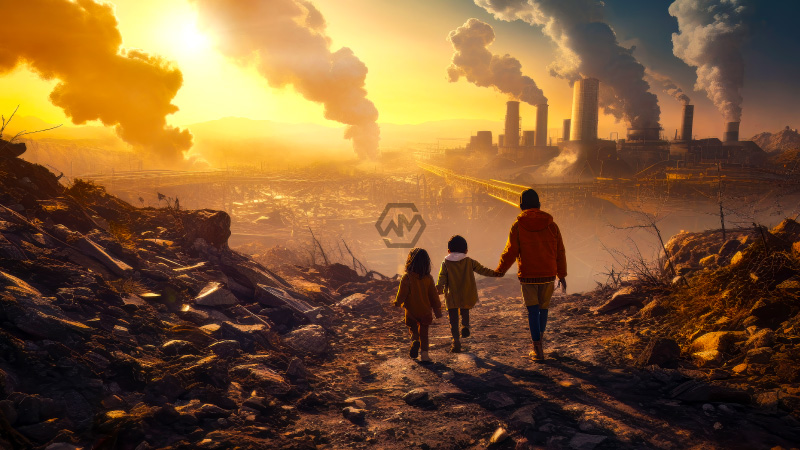- Burkina Faso, Tajikistan, India, Pakistan, and Tajikistan are among the other nations with high levels.
- Geothermal energy is a clean energy source that runs continuously on heat from beneath the surface of the Earth.
- Ford is switching from large electric cars to more affordable, smaller EVs to compete with Chinese producers like BYD.
Bangladesh is the most polluted country in the world, with only seven other nations meeting the World Health Organization’s pollution guidelines in 2023. With an average PM2.5 value of 79.9 micrograms, Bangladesh is the most polluted nation in the world.
Burkina Faso, Tajikistan, India, Pakistan, and Tajikistan are among the other nations with high levels. IQAir, a Swiss corporation, employs 30,000 air quality monitors to determine global pollution levels.
Most Polluted Countries
The US may provide up to one-third of the extra clean energy required by 2050 to achieve President Biden’s emissions targets and keep up with rising electricity demand, according to the Department of Energy (DOE), which predicts a geothermal boom by then.
Geothermal energy is a clean energy source that runs continuously on heat from beneath the surface of the Earth. By 2030, the cost of geothermal electricity is predicted to drop from $100 per megawatt-hour to as low as $60 per megawatt-hour because of advancements in drilling technology, placing it more or less on level with other energy sources.
According to reports, Ford is switching from large electric cars to more affordable, smaller EVs to compete with Chinese producers like BYD. According to Bloomberg, the business has assembled a team to develop a new electric platform for its tiny electric vehicles (EVs), with the first model expected to go on sale in 2026 for about $25,000.
Top oil executives opposed proposals for a swift transition away from fossil fuels at CERAWeek and urged investors to make sufficient investments in them. Amin Nasser, CEO of Saudi Aramco, stressed the value of putting money into clean fuel technology as opposed to gradually weaning off of oil and gas.
In the meantime, a plan to carry out one of the first solar geoengineering operations in the stratosphere—spraying particles into the stratosphere to lower Earth’s temperature by reflecting sunlight into space—was shelved by Harvard researchers.
According to a recent study, showing worst-case environmental scenarios in virtual reality, such as massive coral bleaching events, may encourage people to embrace climate measures.



